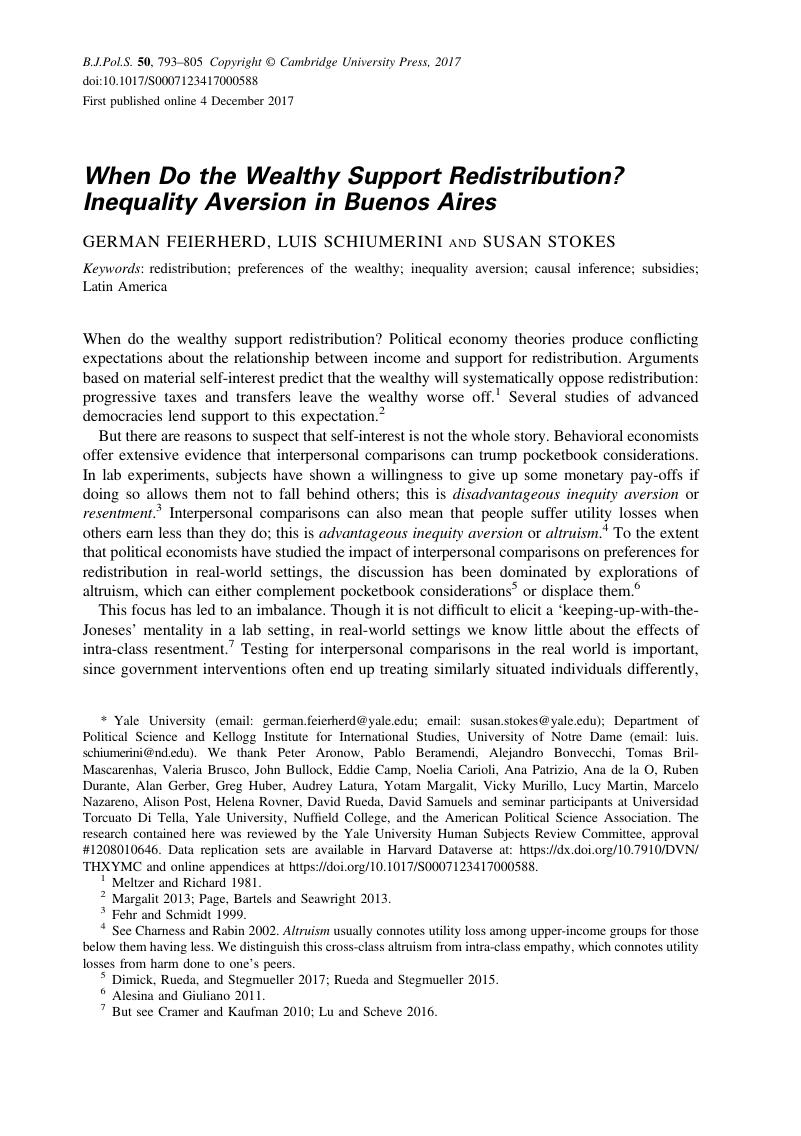Published online by Cambridge University Press: 04 December 2017

Yale University (email: [email protected]; email: [email protected]); Department of Political Science and Kellogg Institute for International Studies, University of Notre Dame (email: [email protected]). We thank Peter Aronow, Pablo Beramendi, Alejandro Bonvecchi, Tomas BrilMascarenhas, Valeria Brusco, John Bullock, Eddie Camp, Noelia Carioli, Ana Patrizio, Ana de la O, Ruben Durante, Alan Gerber, Greg Huber, Audrey Latura, Yotam Margalit, Vicky Murillo, Lucy Martin, Marcelo Nazareno, Alison Post, Helena Rovner, David Rueda, David Samuels and seminar participants at Universidad Torcuato Di Tella, Yale University, Nuffield College, and the American Political Science Association. The research contained here was reviewed by the Yale University Human Subjects Review Committee, approval #1208010646. Data replication sets are available in Harvard Dataverse at: https://dx.doi.org/10.7910/DVN/THXYMC and online appendices at https://doi.org/10.1017/S0007123417000588.